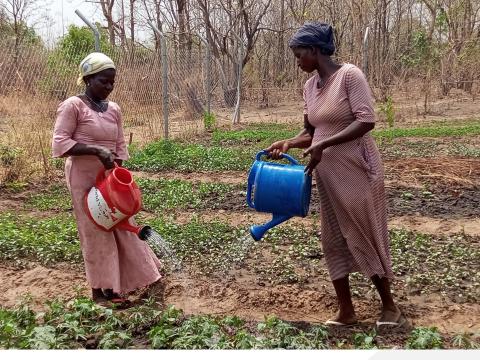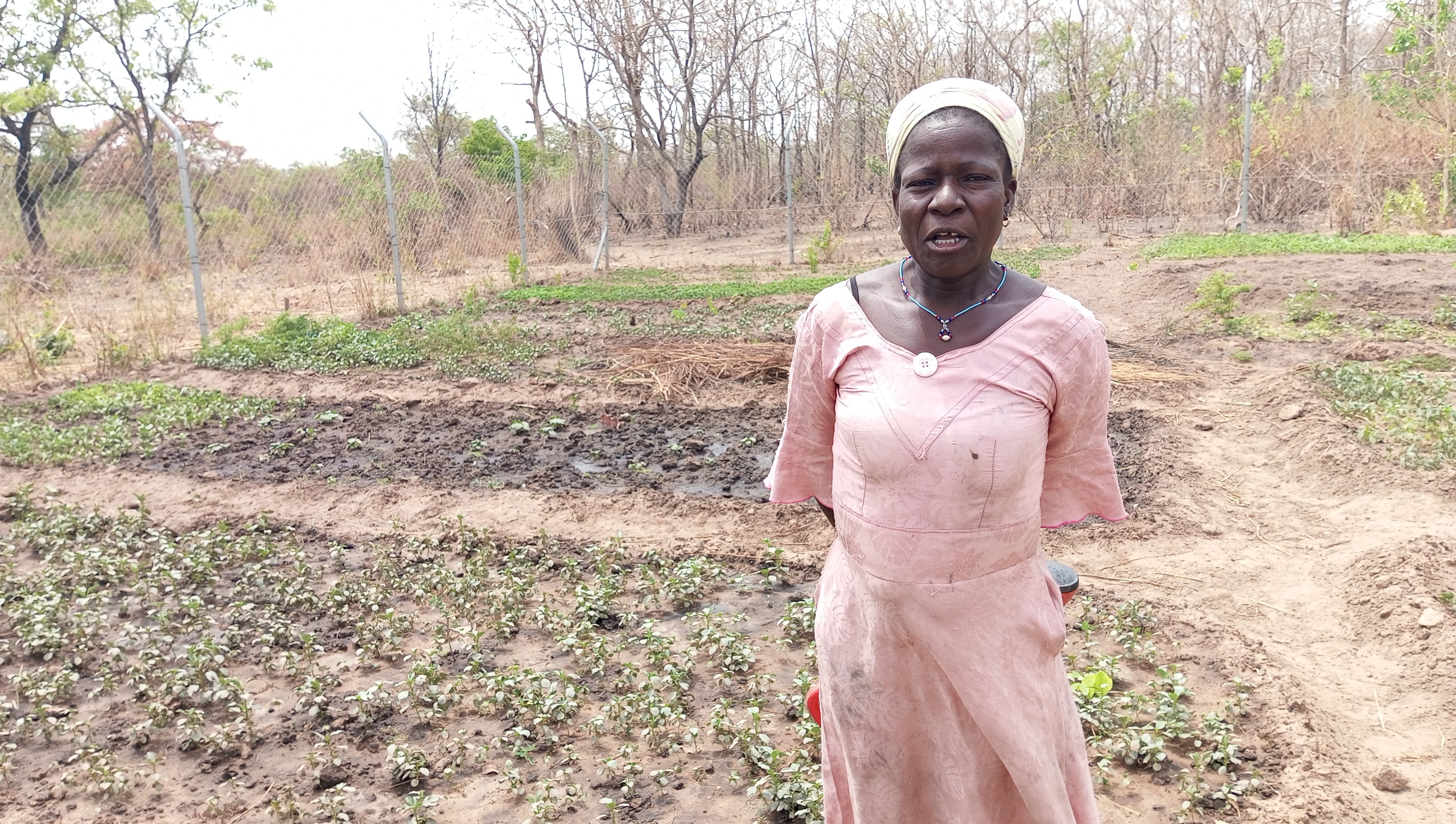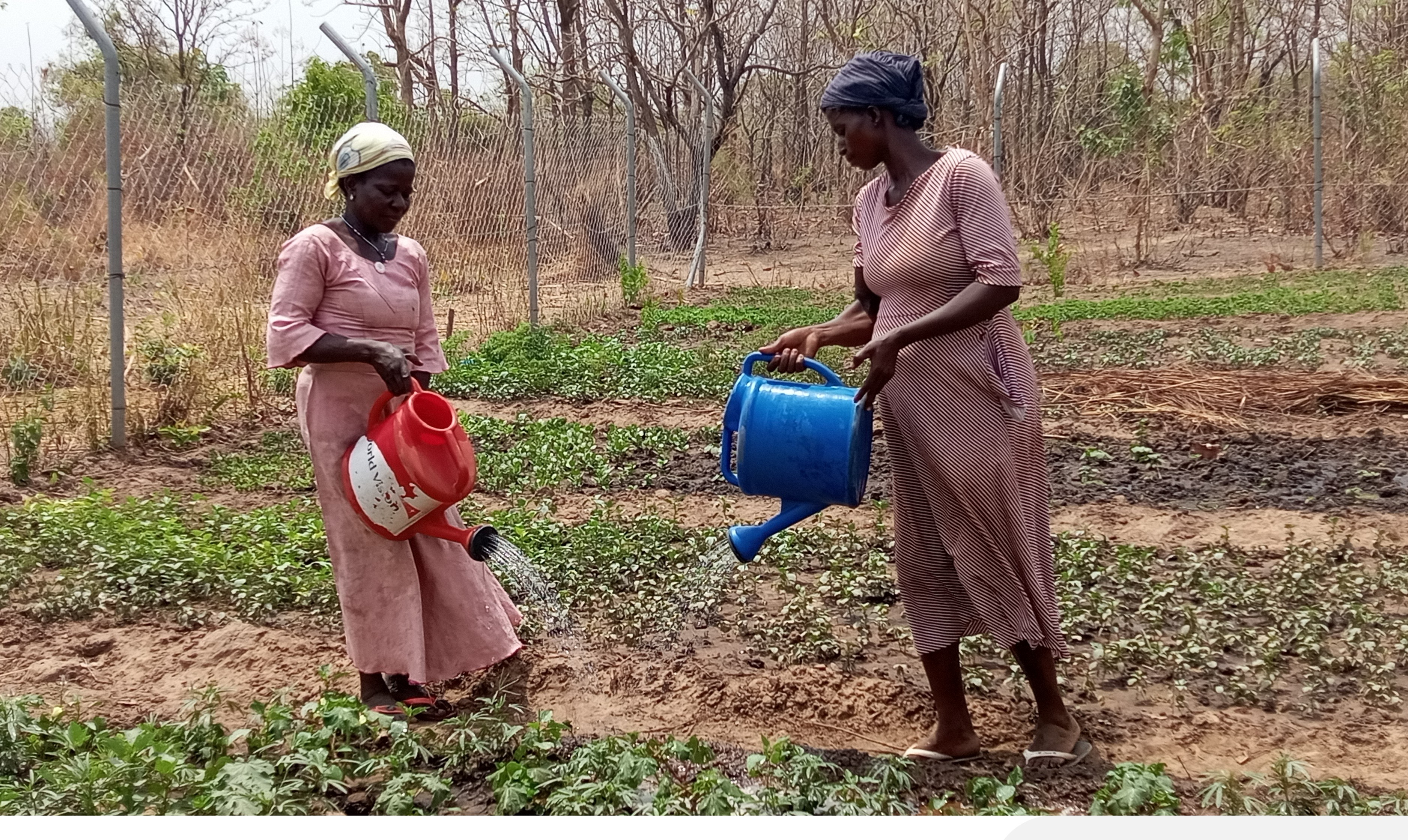From Despair to Hope: World Vision Ghana’s CAT 2 Response Rebuilds Lives

By Francis Npong, Communications Officer
In northern Ghana, where the sun burns relentlessly and rainfall is increasingly unpredictable due to climate change, farmers like 45-year-old Bijoyim embody resilience, hope, and transformation.
For years, she and her family relied on rain-fed agriculture to grow maize, millet, yam, cassava, groundnuts, and other crops. However, when a severe drought struck several parts of Ghana during the 2024 farming season, her crops withered, her income vanished, and her family’s future hung in the balance.
Her voice cracks with emotion as she recalls the devastation: “We had no food, no money, and no way to send our children to school. I felt like I had failed as a mother and a farmer.
Wiping away tears, she reflects on the hardship that engulfed her community, Zorkurli, in the Zabzugu District.
“We lost almost everything to the drought. Life has never been the same since. Meeting my family’s food and nutritional needs became a challenge. Food scarcity had never been this severe. It reminded me of the 1983 drought when farmers lost their crops, and there was no food to buy, even if you had money. This year, we are facing a similar crisis,” recalls Bijoyim.

World Vision Ghana’s CAT 2 Response: A Ray of Hope
Amid the despair, hope emerged. World Vision Ghana, in partnership with donors, launched a humanitarian response to help farmers recover. The initiative, called the “Ghana Drought: Category II (CAT 2) Response,” provided cash transfers, training in climate-smart agriculture, and essential supplies, including certified drought-tolerant seeds. This comprehensive support is helping farmers diversify their incomes and build resilience.
“The reality of climate uncertainties means that response programmes must be integrated into community development efforts,” explains Samuel Gmalu, Humanitarian and Emergency Affairs Manager at World Vision Ghana. “We are supporting rain-fed farmers in diversifying their livelihoods.”
Dry Season Gardening: A Game Changer
While the cash transfers provided immediate relief, World Vision Ghana also introduced long-term solutions, including dry season gardening.
“This is new for us, but we are grateful for the opportunity,” says Bijoyim, smiling, before adding: “even during the peak of the dry season, we now have fresh vegetables.”
Through the CAT 2 initiative, farmers learned to grow tomatoes, onions, and peppers using a mechanised water system provided by the organisation. “I never imagined growing crops in the dry season under this scorching sun, but World Vision Ghana made it possible,” Bijoyim shares enthusiastically. She and 29 other women are not only feeding their families but also earning income by selling surplus produce.
“World Vision Ghana trained us in climate-smart agriculture and showed us how to use mechanised water systems for irrigation. Now, I have food to eat and extra to sell at the market,” she adds.
This initiative has significantly improved food security and provided a steady income for women farmers. By reducing their dependence on rain-fed agriculture, families are now better prepared to withstand future droughts.
For Bijoyim, dry season gardening has been a lifeline. While cash transfers have helped families buy food, pay school fees, and invest in small businesses, being able to grow crops all year round has been transformative. “It gave me the strength to carry on and the means to provide for my family,” she says.

A Community Transformed
Bijoyim’s story is just one of many. Thanks to World Vision Ghana’s CAT 2 initiative, farmers who once struggled to feed their families are now thriving. Children who were at risk of dropping out of school because of poverty are staying in class, and women who once felt powerless now feel empowered.
“We are no longer just surviving; we are thriving,” says Bijoyim. “World Vision has given us the tools and the hope to build a better future.”
As the initiative progresses, vegetable gardens are flourishing, and women who previously only farmed during the rainy season are now working year-round. For these beneficiaries, the journey from drought to hope is a testament to resilience, innovation, and collective action.
With World Vision Ghana's support, farmers are not only recovering from disaster but are also building a sustainable future for themselves and their children. In the face of climate uncertainty, their story is one of strength and renewal.